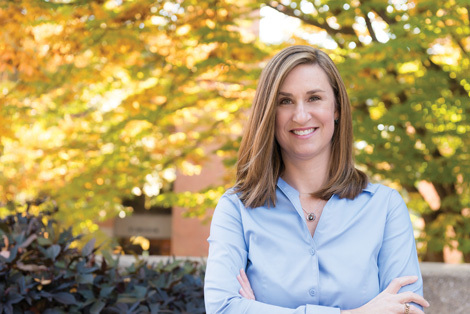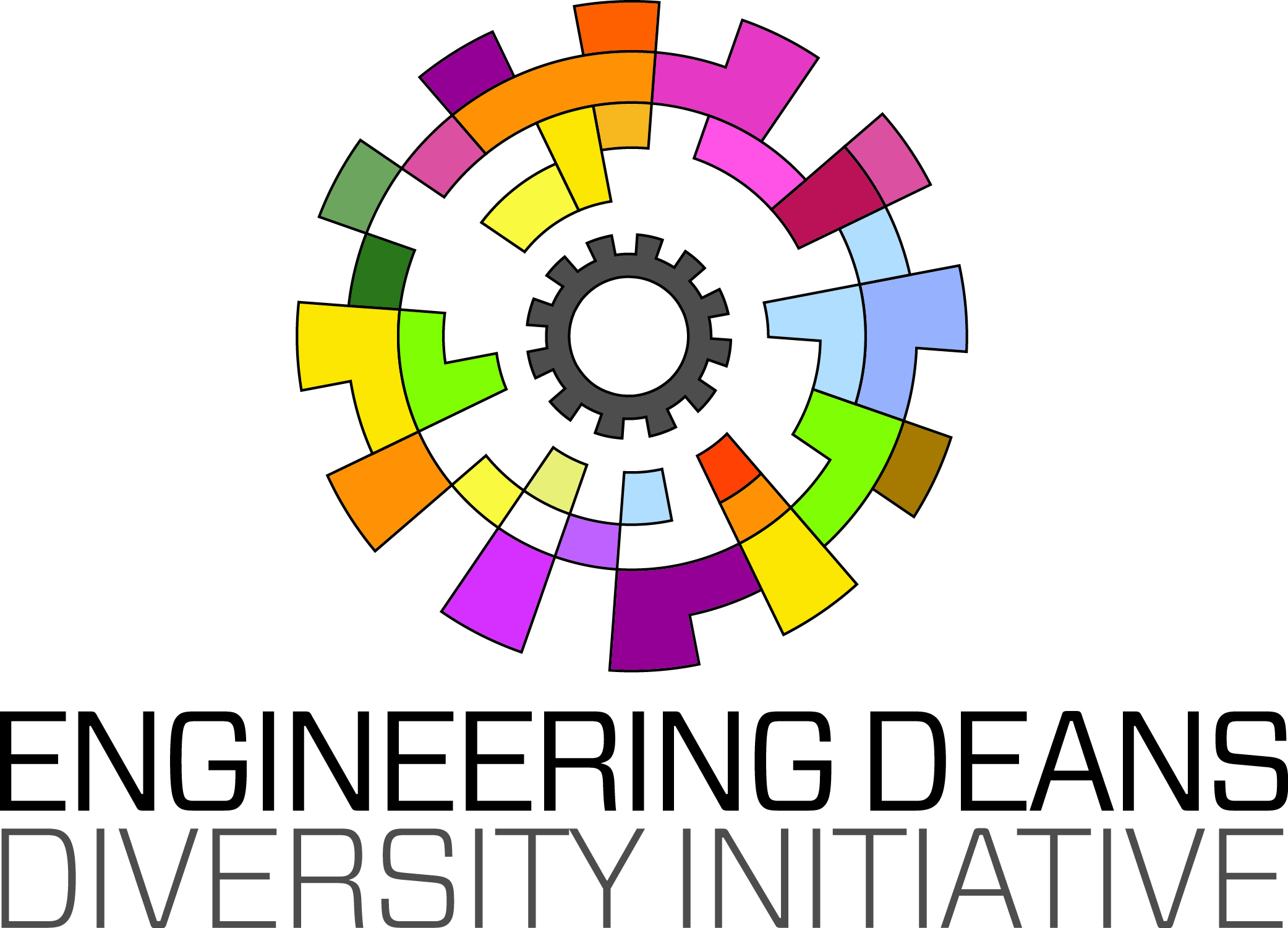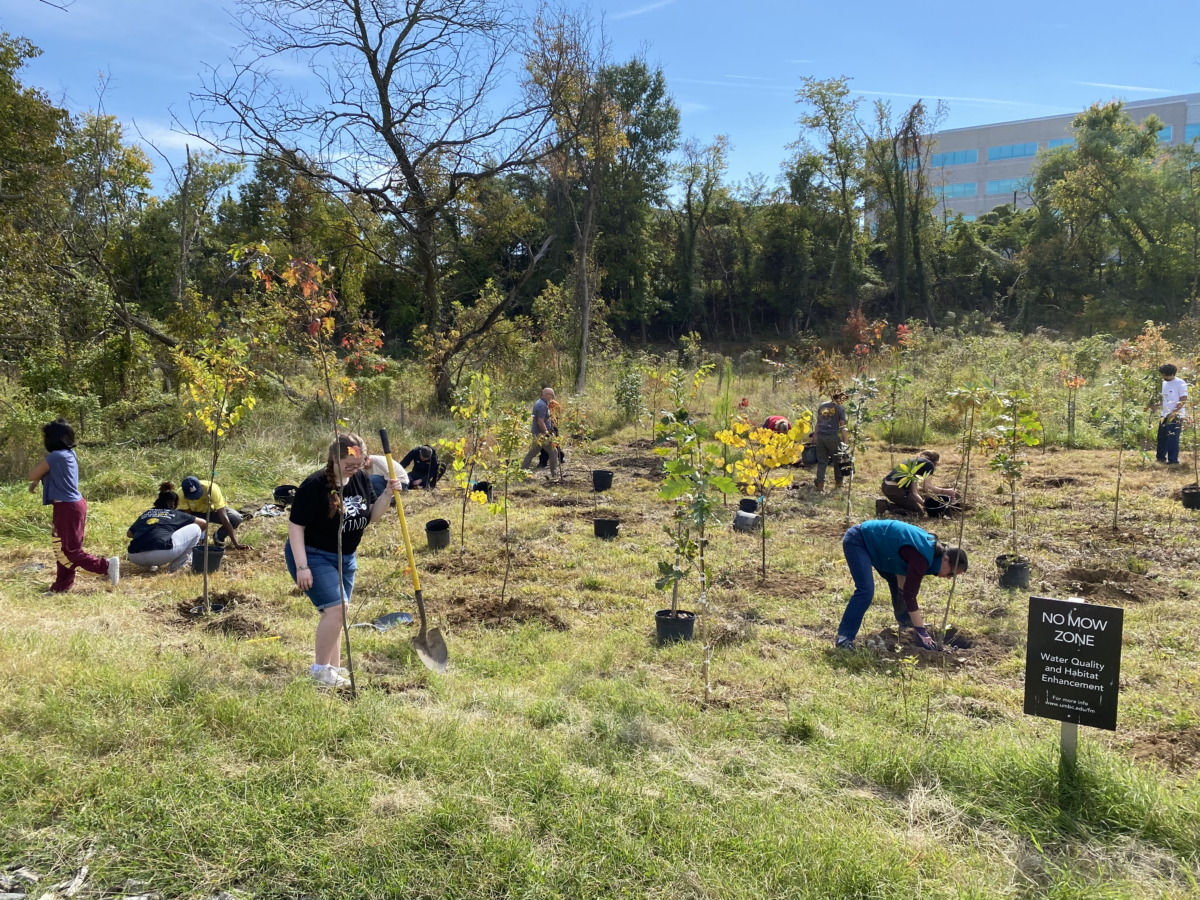The Engineering Deans Council of the American Society for Engineering Education (ASEE) seized the opportunity to outline tangible steps to improve the inclusiveness of engineering education at the first White House Demo Day, hosted by President Barack Obama on Tuesday, August 4, in the White House East Room.
UMBC Dean Julie Ross, College of Engineering and Information Technology (COEIT), is one of more than 100 deans who signed on to the ASEE letter of commitment to diversity presented at Demo Day, which was designed to highlight “why we need to give every American the opportunity to pursue their bold, game-changing ideas.”
The deans’ powerful statement outlines specific steps to increase the participation and success of women and underrepresented minorities in engineering and IT degree programs.
 “The world’s most challenging technological problems demand creative solutions,” Ross shares. “Our best hope is to foster inclusive excellence in our engineering and IT schools and to bring to bear the diverse perspectives, ideas and talents of our nation’s youth.”
“The world’s most challenging technological problems demand creative solutions,” Ross shares. “Our best hope is to foster inclusive excellence in our engineering and IT schools and to bring to bear the diverse perspectives, ideas and talents of our nation’s youth.”
Her words echo the spirit of the ASEE letter, which emphasizes that innovation is core to engineering, and “diversity and inclusiveness are essential for the development of creative solutions to the world’s challenges.” The letter continues, “While gains have been made in the participation of women, African-Americans, Hispanics, and Native Americans in engineering in recent decades, significant progress is still needed to reach a level where the engineering community fully embraces all segments of our increasingly diverse and vibrant society.”
 UMBC and the other signing colleges and universities specifically commit to develop and implement: (1) a diversity plan for engineering programs, including priorities, goals, and assessment plans to ensure accountability; (2) activities partnering with K-12 schools and/or community college to increase the diversity of students in the engineering education pipeline; (3) strong partnerships between research-intensive engineering schools and non-PhD granting engineering schools serving populations underrepresented in engineering; and (4) proactive strategies to increase the representation of women and underrepresented minorities as engineering faculty.
UMBC and the other signing colleges and universities specifically commit to develop and implement: (1) a diversity plan for engineering programs, including priorities, goals, and assessment plans to ensure accountability; (2) activities partnering with K-12 schools and/or community college to increase the diversity of students in the engineering education pipeline; (3) strong partnerships between research-intensive engineering schools and non-PhD granting engineering schools serving populations underrepresented in engineering; and (4) proactive strategies to increase the representation of women and underrepresented minorities as engineering faculty.
UMBC’s numerous new and longstanding STEM collaborations with K-16 partners form a strong basis for this work. One example is the Transfer Scholars in Information Technology and Engineering (T-SITE), funded by NSF to support the success of students transferring from Maryland community colleges to UMBC to study computer science, computer engineering and information systems.
Ross has received a multi-million NSF grant for the project INSPIRES: Increasing Student Participation, Interest and Recruitment in Engineering and Science. Collaborating with education faculty Jon Singer and Chris Rakes, she is helping Baltimore County high school biology and technology teachers feel prepared to effectively integrate engineering into their teaching.
Ross’s motivation for engaging talented students from all backgrounds in the field of engineering is simple: “We must work to ensure equal opportunity and access to all who seek it if we are to find the creative solutions we need.”
Tags: COEIT, diversityandinclusion



